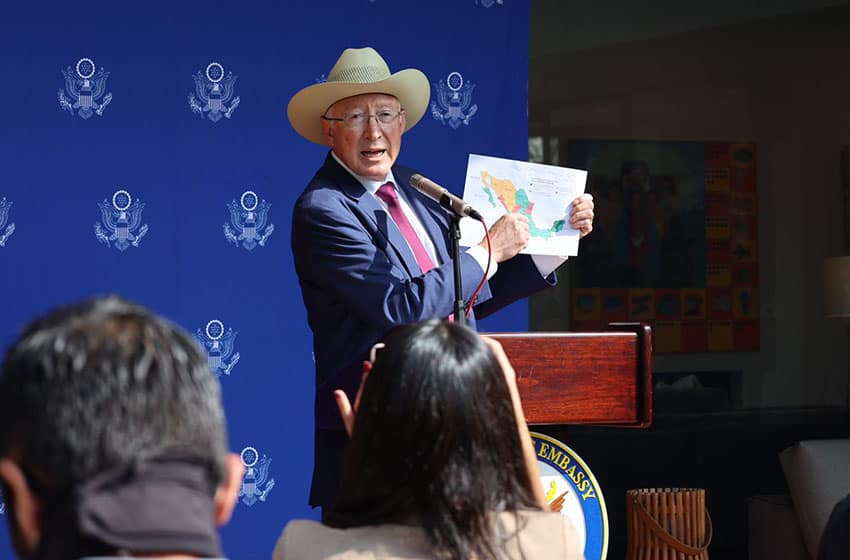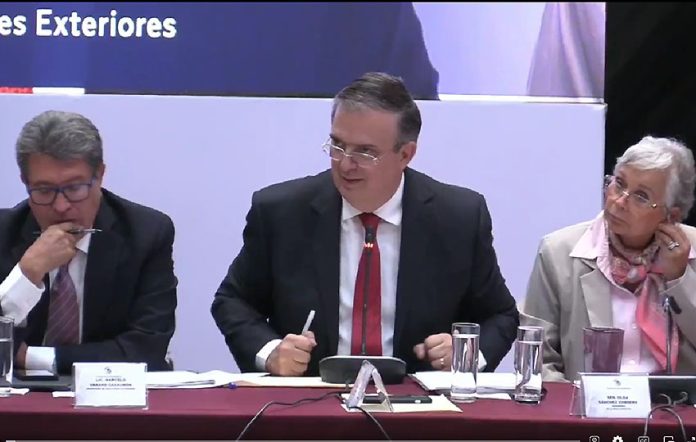Foreign Affairs Minister Marcelo Ebrard has struck back at United States Ambassador Ken Salazar after he asserted earlier this month that recent violence in Mexico would have a negative impact on foreign investment.
After outbreaks of cartel-related violence in Jalisco, Guanajuato, Chihuahua and Baja California, Salazar said August 18 that “with insecurity, investment here in Mexico from the United States and other countries cools off.”
“That’s contrary to what should happen under the USMCA dream,” the ambassador said, referring to the free trade agreement between the United States, Mexico and Canada. “There should be more investment, but insecurity is a big factor for business people,” Salazar said.
The ambassador also said it was time for the bilateral security partnership to yield results.

During a meeting with Morena party senators on Tuesday, Ebrard responded to Salazar’s remarks, insinuating that the United States hasn’t done enough to help reduce violence in Mexico because large numbers of firearms continue to flow southward across the two countries’ shared border.
“The United States ambassador said the other day that ‘it’s time for results in security.’ The question I would ask – and I’m going to ask the ambassador when we see each other – is: by how much has the United States reduced the illegal trafficking of arms?” the foreign minister said.
The Foreign Ministry said in 2019 that firearms from the United States were used in seven out of every 10 high-impact crimes committed in Mexico.
Ebrard highlighted that U.S. authorities committed to reducing the smuggling of firearms into Mexico when the two countries entered into a new security agreement – the Bicentennial Framework for Security, Public Health and Safe Communities – late last year.

Announcing the framework last October, Mexico and the U.S. affirmed their commitment to work together to combat arms trafficking. In a joint statement, the two countries said they would work together on the detection and interdiction of firearms and consider new strategies to combat the flow of weapons across their shared border.
“… We affirm our support for current initiatives and the need to continue current efforts to stop firearms sold in the United States from reaching Mexico, and actions to identify, target and investigate financing, transportation and communication methods employed by smuggling networks in order to disrupt and dismantle their operations,” the statement said.
Ebrard said bluntly that the United States has an “obligation” to stop firearms crossing the border into Mexico. He also noted that Mexico’s case against U.S.-based gun manufacturers – in which the government accuses them of negligent business practices that have led to illegal arms trafficking and deaths here – is ongoing.
The foreign minister expressed confidence that the United States court considering the case will soon hand down a ruling in Mexico’s favor.
“If you want [your gun] to say ‘Jalisco New Generation Cartel,’ they’ll do it for you. How is that not reprehensible?” Ebrard said. “And at the same time, the [U.S.] ambassador asks me why violence hasn’t declined.”
With reports from Reforma
